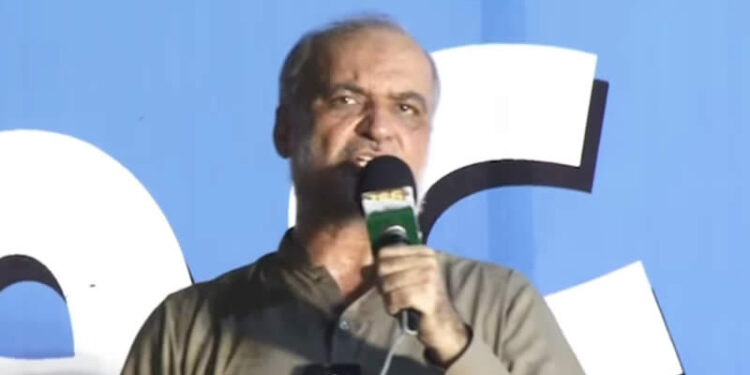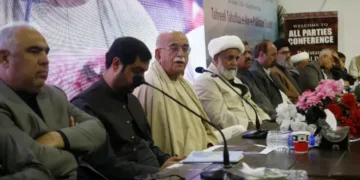Jamaat-e-Islami (JI) chief Hafiz Naeemur Rehman has issued a stern warning to the government, stating that the party’s sit-ins will expand if their demands are not addressed. “We don’t want confrontation and chaos but don’t take this restraint as our weakness. Instead, take a look at what is going on in Kenya and Bangladesh,” Naeem said on Sunday.
For the past ten days, JI has been staging a sit-in in Rawalpindi against the government’s economic policies, which the party claims have overburdened the common man. The protest is set to escalate with a new sit-in outside the Sindh Governor House starting Friday.
During a visit to the Karachi sit-in, Naeem urged the government to reduce the electricity tariff “before it is too late and people refuse to pay the bills.” He criticized the government’s agreements with Independent Power Producers (IPPs), highlighting that Rs8,500 billion has been paid to IPPs, severely burdening the national exchequer.
Naeem demanded a forensic audit of the IPPs’ accounts, stating, “Forensic audit of the IPP accounts will also expose multiple parties who have been the beneficiaries of the illogical agreements with these power producers.” He accused the rulers of being complicit with the IPPs, which he believes is why they avoid taking drastic action against them.
He pointed out the reluctance of the government to renegotiate agreements with the IPPs, despite it being a common practice in international dealings. Naeem also blamed the current situation on the local agents of the International Monetary Fund (IMF) within the ruling class, calling for a rationalization of the tax regime and relief for the masses.
On the tenth day of the sit-in at Rawalpindi’s Liaquat Bagh, JI deputy chief Liaquat Baloch declared that the protest had become a national movement. He noted the participation of various segments of society, including traders, industrialists, youth, farmers, workers, women, and students.
The growing protests underscore the widespread dissatisfaction with the government’s economic policies and highlight the JI’s commitment to pushing for change. The party’s escalating sit-ins and calls for systemic reforms signal a potentially turbulent period ahead for the government if their demands continue to go unmet.












